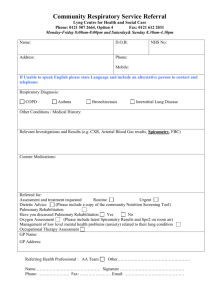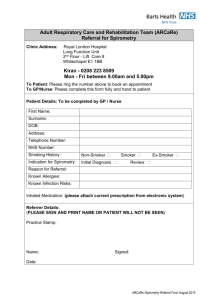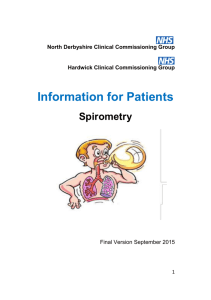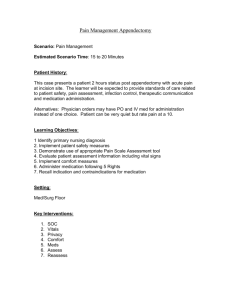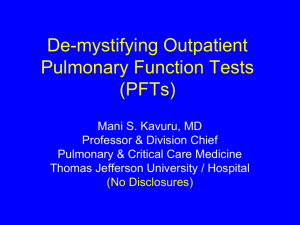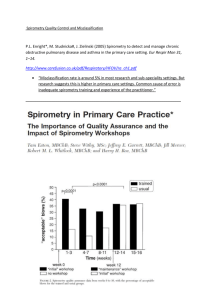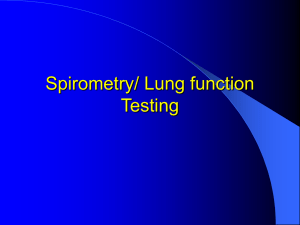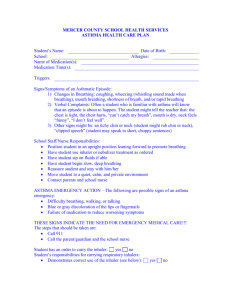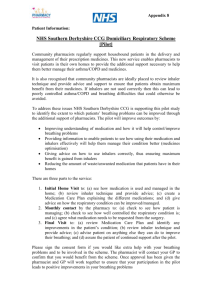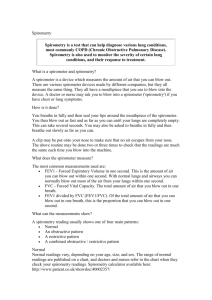Spirometry Testing: Patient Guide & Reversibility Info
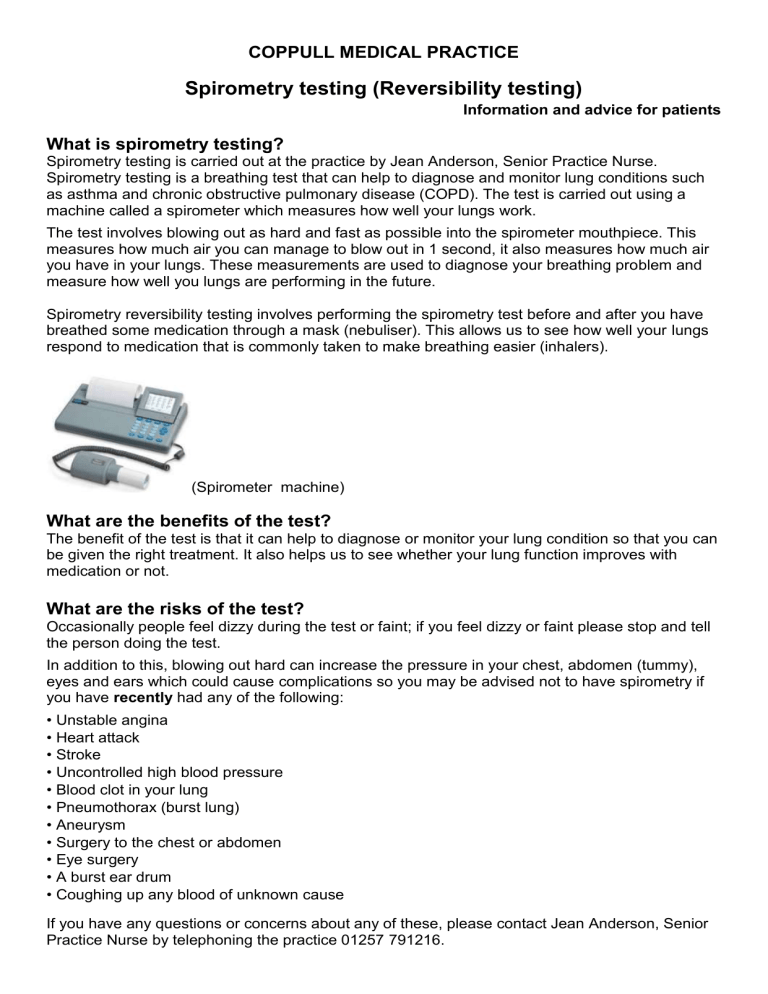
COPPULL MEDICAL PRACTICE
Spirometry testing (Reversibility testing)
Information and advice for patients
What is spirometry testing?
Spirometry testing is carried out at the practice by Jean Anderson, Senior Practice Nurse.
Spirometry testing is a breathing test that can help to diagnose and monitor lung conditions such as asthma and chronic obstructive pulmonary disease (COPD). The test is carried out using a machine called a spirometer which measures how well your lungs work.
The test involves blowing out as hard and fast as possible into the spirometer mouthpiece. This measures how much air you can manage to blow out in 1 second, it also measures how much air you have in your lungs. These measurements are used to diagnose your breathing problem and measure how well you lungs are performing in the future.
Spirometry reversibility testing involves performing the spirometry test before and after you have breathed some medication through a mask (nebuliser). This allows us to see how well your lungs respond to medication that is commonly taken to make breathing easier (inhalers).
(Spirometer machine)
What are the benefits of the test?
The benefit of the test is that it can help to diagnose or monitor your lung condition so that you can be given the right treatment. It also helps us to see whether your lung function improves with medication or not.
What are the risks of the test?
Occasionally people feel dizzy during the test or faint; if you feel dizzy or faint please stop and tell the person doing the test.
In addition to this, blowing out hard can increase the pressure in your chest, abdomen (tummy), eyes and ears which could cause complications so you may be advised not to have spirometry if you have recently had any of the following:
• Unstable angina
• Heart attack
• Stroke
• Uncontrolled high blood pressure
• Blood clot in your lung
• Pneumothorax (burst lung)
• Aneurysm
• Surgery to the chest or abdomen
• Eye surgery
• A burst ear drum
• Coughing up any blood of unknown cause
If you have any questions or concerns about any of these, please contact Jean Anderson, Senior
Practice Nurse by telephoning the practice 01257 791216.
Are there any alternatives to this test?
There are no alternative investigations that measure the same thing.
Preparing for the test
Please stop taking the following medication for the following time periods before your test unless you need to use them because your symptoms are worsening:
Medication Type
For 4-8 hours before
Inhaler or nebuliser
Drug Name Brand Name
Salbutamol Ventolin, Salamol, Asamol clickhaler, Salbumin, Airomir,
Combivent
Bricanyl Inhaler
For 6 hours before
Inhaler or nebuliser
For 24 hours before
Inhaler
Inhaler
Tablet
Terbutaline
Ipratropium bromide
Salmeterol
Fometerol
Theophylline
Atrovent
Seretide, serevent
Symbicort, Oxis, Fostair,
Foradil, Atimos Modulite
Slo-phylline, Uniphylline
Continus, Nuelin SA
Phyllocontin continus
Ventolin, ventmax
Tablet
Tablet or syrup
For 24-36 hours
Inhaler
Aminophylline
Salbutamol
Tiotropium Spiriva
Avoid wearing tight clothing that would restrict you breathing in.
Avoid eating a large meal just prior to the test (a snack within an hour should be OK)
Avoid smoking at least 4 hours before the test
Avoid alcohol for at least 4 hours before the test
If you need to go to the loo (bladder or bowel) before the test, make sure you do.
If you have either diarrhoea or vomiting you should refrain from the test.
If you have a heavy cold or chest infection you should in most cases inform the Senior
Practice Nurse and postpone the test until you are better.
Please note Spirometry testing can take up to 40 minutes. Please cancel/rearrange your appointment if you cannot attend.
July 2013
